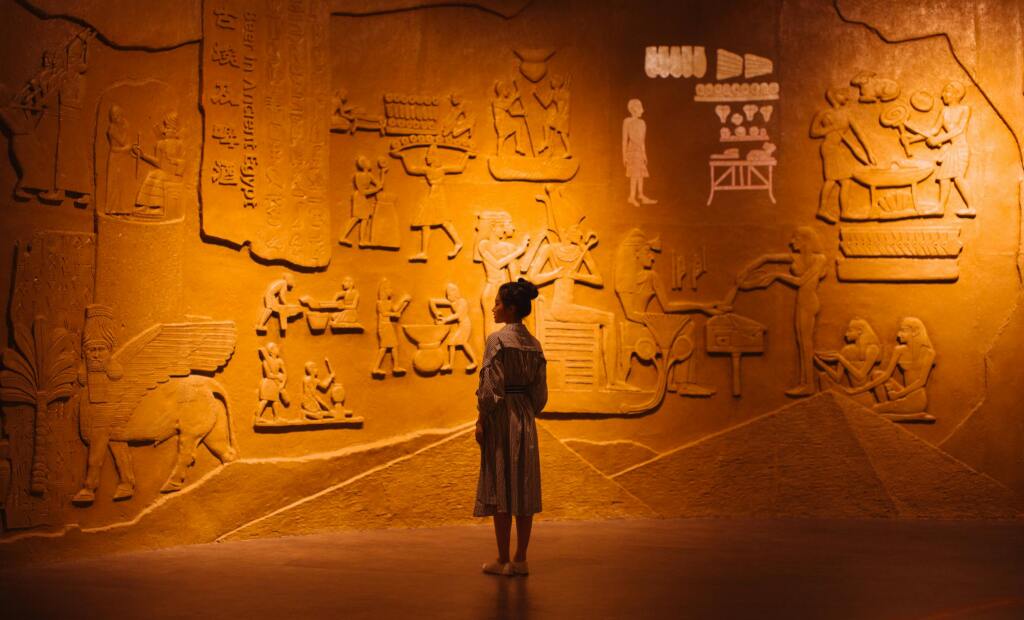Before electric toothbrushes, floss, and modern dentistry, ancient civilizations found surprisingly effective (and sometimes bizarre) ways to care for their teeth.
While some techniques were primitive, others showed a deep understanding of oral hygiene and disease prevention.
Let’s explore the dental secrets of ancient cultures, what they got right, and what we can still learn from them today.
🦷 Why Study Ancient Dental Practices?
Modern dental science is highly advanced, but understanding how ancient people cared for their teeth helps us:
- Uncover the origins of oral hygiene 🪥
- Appreciate natural and holistic approaches 🌿
- Discover forgotten remedies still useful today 🧪
🇪🇬 Ancient Egypt: The Pioneers of Oral Hygiene
The Egyptians were obsessed with cleanliness, including dental care.
🧴 Toothpaste & Mouthwash Recipes
- The earliest known toothpaste was made from crushed rock salt, mint, iris flower, and pepper.
- Mouthwashes made with vinegar or wine were used to kill germs and freshen breath.
🛠️ Dental Tools
- Archaeologists found toothpicks, tweezers, and primitive brushes in tombs.
- Evidence shows dental fillings made of honey and resin.
Fun Fact: The Ebers Papyrus (c. 1500 BCE) includes treatments for toothaches and gum disease.
🇮🇳 Ancient India: Ayurveda and Dental Rituals
In India, oral health was deeply integrated into Ayurvedic medicine, a holistic healing system.
🪥 Miswak & Herbal Chewing Sticks
- Twigs from neem and babool trees were used like toothbrushes.
- These sticks have antibacterial properties and are still used today in parts of India and Africa.
🌀 Oil Pulling
- Known as “Kavala” or “Gandusha” in Ayurveda.
- Involved swishing sesame or coconut oil to remove toxins and prevent decay.
🧘 Whole-Body Connection
- Oral health was linked to gut and overall health, emphasizing diet, detox, and spiritual balance.
🇬🇷 Ancient Greece: From Hippocrates to Dental Floss
The Greeks advanced dental knowledge through observation and medicine.
🧠 Hippocrates’ Influence
- Recommended a blend of alum, vinegar, and salt for tooth pain and gum disease.
- Promoted oral rinses and diet control.
🧵 Primitive Flossing?
- Greeks used coarse linen threads to clean between teeth, an early form of floss!
🇨🇳 Ancient China: Herbal Wisdom
Chinese medicine views oral health as a mirror of internal balance (Yin and Yang).
🍃 Herbal Remedies
- Used licorice root, ginseng, clove, and rhubarb for inflammation and bad breath.
- Clove oil is still used today for toothaches due to its numbing properties.
🔥 Acupuncture for Tooth Pain
- Specific pressure points were believed to relieve dental pain and swelling.
🇲🇽 The Mayans: Skilled Tooth Artists and Healers
Mayan culture treated teeth as both functional and decorative.
💎 Tooth Inlays
- The Mayans carved decorative notches and inserted jade, turquoise, and gold into teeth using advanced adhesive techniques.
🔮 Natural Fillings
- Tree resins and plant-based materials were used to seal cavities and reduce pain.
🧪 What Did Ancient Civilizations Get Right?
✅ Natural Antimicrobials
Neem, clove, myrrh, and salt were powerful agents against oral bacteria.
✅ Manual Cleaning Tools
Chewing sticks and toothpicks, while basic, helped reduce plaque.
✅ Diet Matters
Pre-industrial diets were lower in sugar and processed carbs, resulting in fewer cavities.
✅ Holistic Awareness
Cultures like Ayurveda and TCM (Traditional Chinese Medicine) understand the mouth-body connection.
❌ What They Got Wrong (or Couldn’t Avoid)
- No anesthesia for dental procedures 🥴
- A limited understanding of tooth decay causes
- No advanced treatments for severe infections
- Use of harsh abrasives that damaged enamel over time
🧠 What We Can Learn from the Past
Modern dentistry can still benefit from ancient wisdom, especially in:
- Using natural antibacterials for preventive care
- Embracing holistic oral health linked to overall wellness
- Respecting manual techniques like oil pulling and flossing
- Focusing on diet-based prevention rather than symptom management
🗿 FAQs: Dental Secrets of Ancient Civilizations
1. Did ancient people have fewer cavities?
Yes, mostly due to low-sugar diets and lack of processed foods.
2. Was oil pulling really effective?
It can reduce bacteria and inflammation but won’t reverse decay.
3. What’s the oldest known toothpaste?
An Egyptian formula from 4,000+ years ago, made with rock salt and mint.
4. Did any cultures practice fillings or dental surgery?
Yes, Egyptians and Mayans used early forms of fillings and even dental drills!
5. Are natural toothbrushes like miswak still useful today?
Yes! Studies show that miswak is comparable to modern toothbrushes for plaque removal.
🧬 Final Thoughts
Ancient civilizations were far more advanced in oral care than we often realize.
While modern dentistry has given us powerful tools, nature and tradition still have much to offer.
By combining ancestral wisdom with today’s science, we can take a holistic approach to oral health, just as our ancestors did.
















